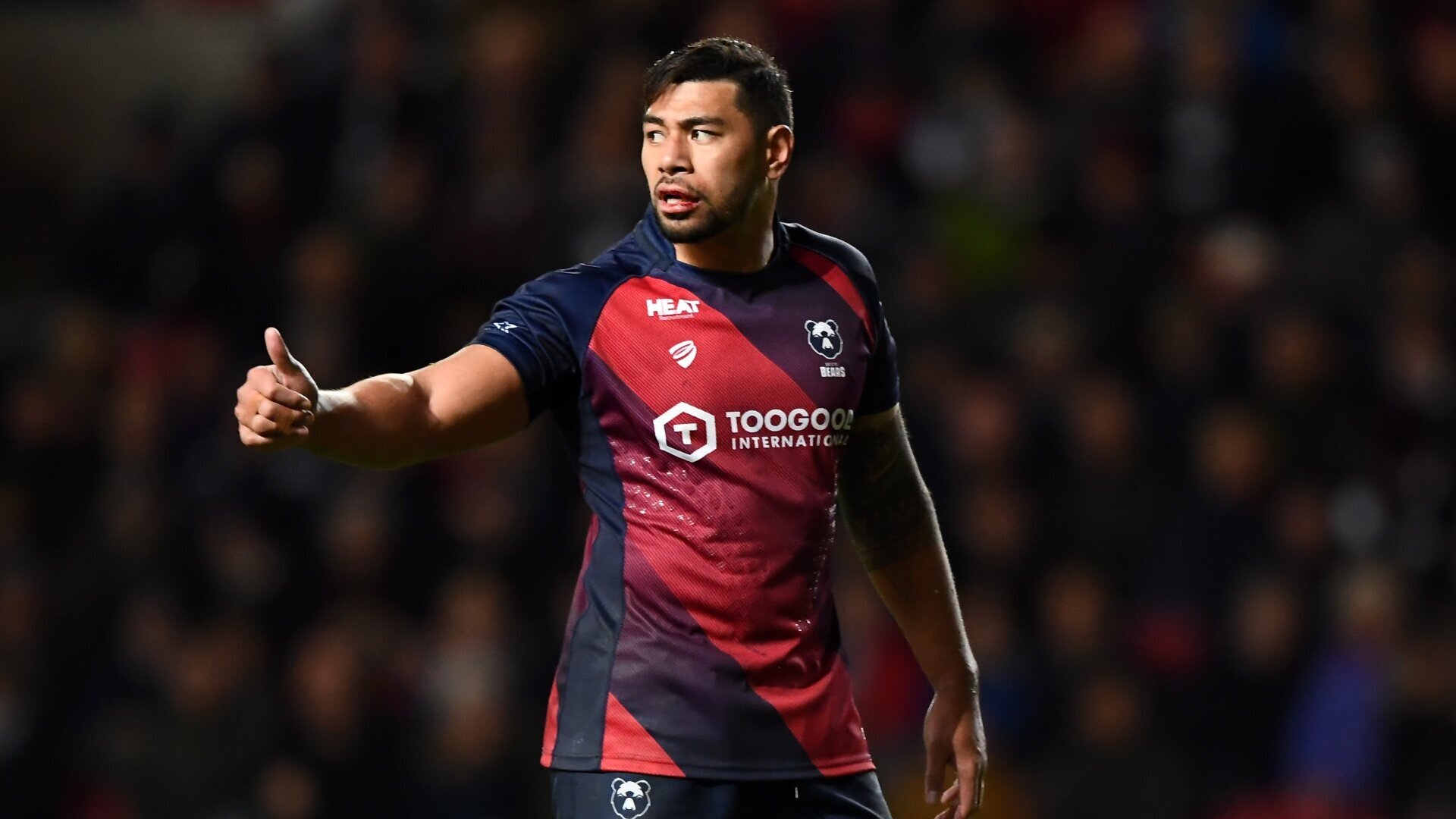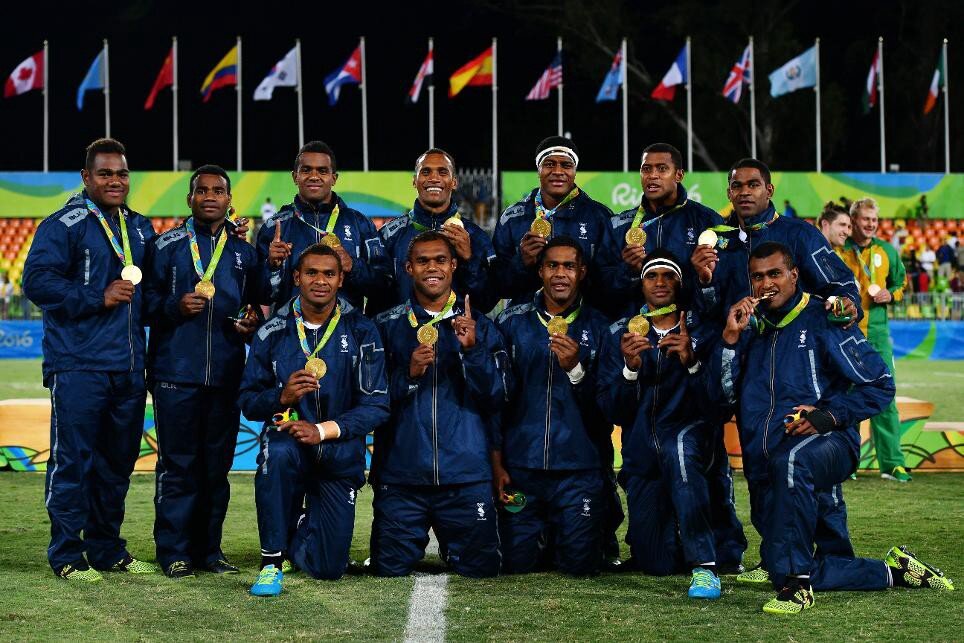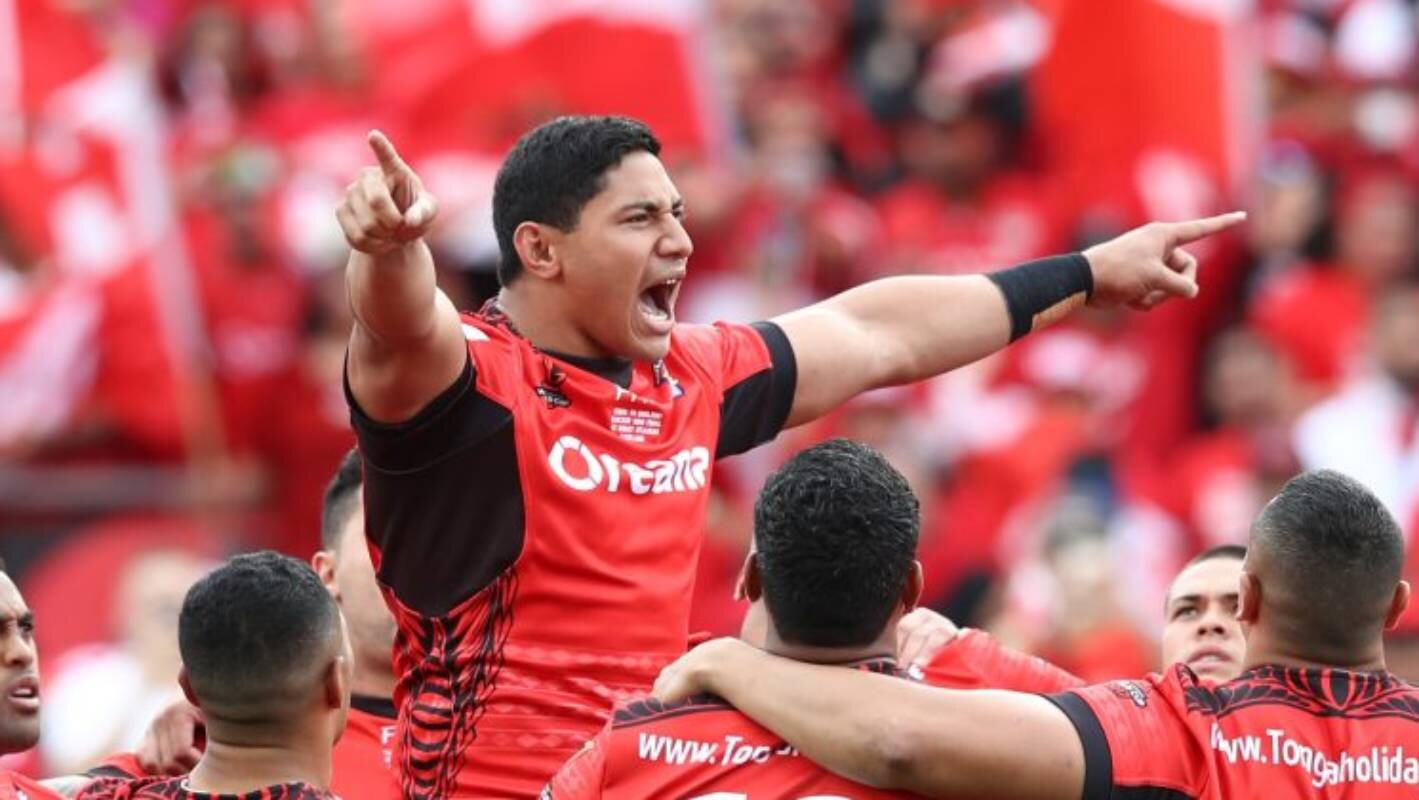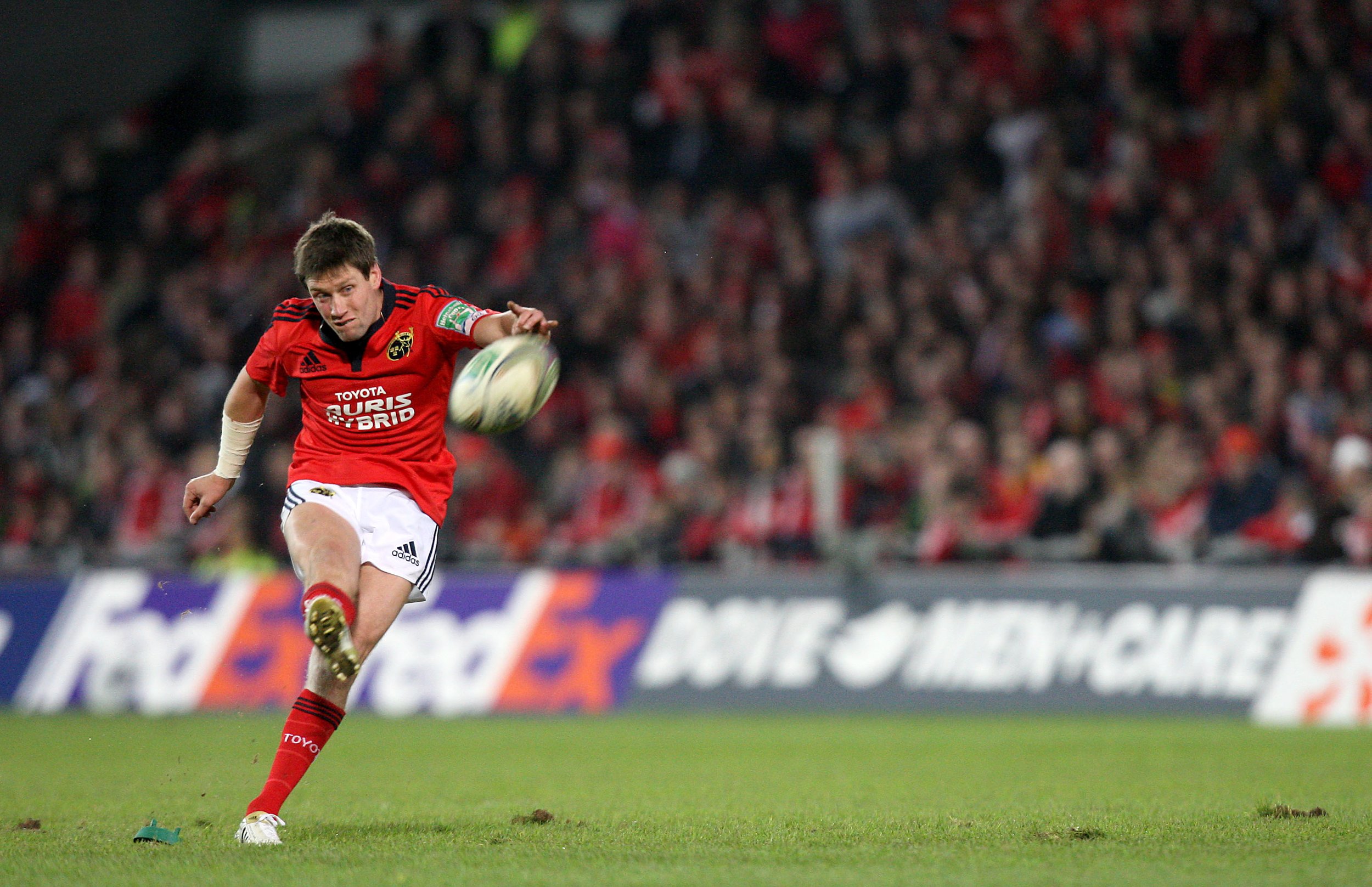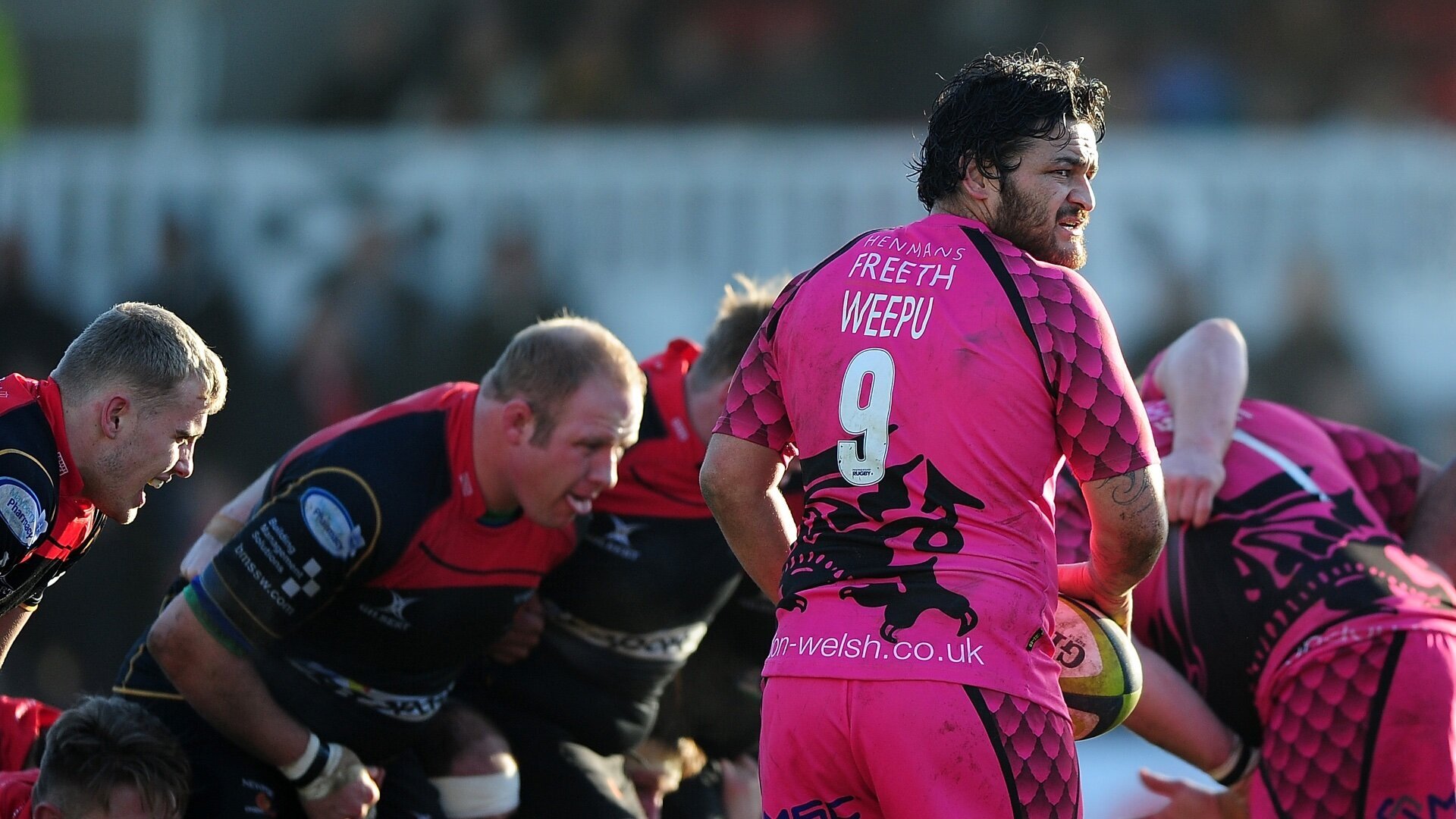The case for changing rugby’s antiquated eligibility rules
Charles Piutau was the biggest name player to push for a switch to his nation of origin
Credit: Alex Davidson/Getty Images
We have all found ourselves wowed and amazed by the players hailing from the Pacific Islands - but so often in another shirt.
Scores of players who have donned the white of England, the black of New Zealand or the gold of Australia have had their roots in the islands.
However, it is a rare case these days where a player who has been dropped from international rugby after representing one of these other nations gets to give something back to their homeland.
The issue has come to light in recent weeks with the release of Dan Leo’s determined and powerful documentary Oceans Apart: Greed, Betrayal and Pacific Rugby.
Leo, a former Samoan international, was dropped from his international side in 2014 after speaking out on behalf of a playing group that came within a hair’s breadth of boycotting their game against England at Twickenham.
The game would be Leo’s last international appearance as he announced his retirement in May of the following year when it became clear he would never play for his country again.
Former Samoan international Dan Leo has led the charge to address issues in Pacific rugby
Credit: Gabriel Bouys/AFP/Getty Images
His documentary covers a lot of ground in trying to expose corruption, poor management and the lack of support among the Pacific Island unions.
Among one of the key issues he discusses in depth is the ‘player drain’ out of the islands to nations such as Australia, New Zealand and France, for which so many talented players end up plying their trade and appearing on the international stage.
In recent years, the high profiles achieved by the likes of Virimi Vakatawa in France, Manu Tuilagi and the Vunipola brothers in England and players almost beyond count in Australia and New Zealand only serve to underline his point.
Endemic of the lack of support for the island nations is the refusal (so far) to change eligibility rules to allow those players to switch allegiance in a timely manner and use their dual nationality to benefit their other country.
With the current system being clunky, bureaucratic and frankly antiquated, The Flanker has examined the arguments as to why the rules need changing.
What do the current rules state?
The Olympic qualification pathway is the current way in for players to switch allegiances
Credit: World Rugby
The door for players to switch international allegiances once capped is not entirely closed, but it is very hard to open.
The current World Rugby rules state that any player capped by a nation who wishes to change their allegiance must first be stood down from playing for the nation that capped them for three years - in line with International Olympic Committee rules.
After this three-year absence has been completed, in order to compete at Test level the player must then gain eligibility by playing for their nation’s sevens team.
The rule says:
A Player who has represented one Union / country in an Olympic Event(s) and who has changed their nationality or acquired a new nationality may participate in Olympic Events to represent their new Union / country provided that at least three (3) years have passed since the Player last represented their former Union / country and the approval of the International Olympic Committee, the relevant National Olympic Committee(s) and World Rugby is obtained.
Once that player has appeared for their new country in an Olympic event - which in the case of rugby is through sevens - they are then considered to have completed an eligibility switch and free to play Test rugby.
The ballad of Charles Piutau
Charles Piutau currently plies his trade at Bristol Bears
Credit: Jan Kruger/Getty Images
A perfect example of the lack of big picture thinking when it comes to Pacific Island rugby was the debate over the international status of Charles Piutau.
A player currently considered one of the best in the Premiership and reportedly on a £1 million a year at Bristol Bears, Piutau made 17 appearances for the All Blacks while playing in Super Rugby and has strong Tongan heritage.
In the lead-up to the 2019 World Cup, with Piutau based in the Northern Hemisphere and ineligible to be selected for New Zealand, Piutau applied for the right to be selected for the tournament by Tonga.
After trying to fit through every hoop thrown at him by the current structure, Piutau and Tonga were ultimately denied a reunion that would have made the islanders the talk of the tournament.
Unfortunately, as Tonga discovered, it gets to a stage where the loopholes nations need to jump through to get inactive but eligible international-calibre players to represent them becomes stifling and too much of a slog to become viable.
The question inevitably gets begged at times like that on what basis the move was considered to be a problem - a query raised by Tonga after the decision was reached.
Then-Tonga coach Toutai Kefu told Stuff.co.nz at the time of the decision: "We were actively exploring a group of players, not just Charles, that were in the same boat and whether we could qualify them before the World Cup, and we can't.
“I think that's a bit rich.
“It’s just an extra hoop we don't need players to jump through - the three years alone, stand-down, is fine.
“I don't think there are any integrity issues there.
“When you watch a game and you have the best players on the field and you have a fantastic spectacle in front of you, I don't think anyone is thinking about integrity.”
In light of Piutau’s efforts, the question is begged - what does it do for the benefit of the global game to not allow a player who was in no danger of selection by New Zealand to sit at home during the World Cup?
Why not raise the profile of a nation that needs a bit of stardust?
The example of rugby league…again
Rugby league star Jason Taumalolo defected from New Zealand and declared for Tonga
Credit: Getty Images
It’s a hard pattern for a devoted rugby union fan to admit is emerging but it really does seem like rugby league is one step ahead of the 15-man game in many ways.
One of the crucial ways that it definitely has the upper hand is its reform of eligibility rules to allow players already capped by one nation to switch allegiances.
The move has already made a significant impact on the landscape of the sport.
Tonga has been the biggest beneficiaries of the move, with superstars of the game like New Zealand star Jason Taumalolo and Australian-capped prop Andrew Fitita exploiting their Tongan heritage and switching allegiances to play for their island of origin prior to the 2017 World Cup.
Hordes of other NRL stars followed suit and since that time, as Leo’s documentary points out, Tonga have defeated all three of the top nations in world rugby league - Australia, New Zealand and England.
When you look at the plethora of union players who qualify for the island nations in the domestic leagues of France, England, New Zealand and Australia but have been capped by those countries and are no longer in the reckoning - one gets a snapshot of the power that could be available.
Even forgotten men of England like Semesa Rokoduguni and Nathan Hughes could bring not only quality as players but also so much experience and professionalism to the island unions - setting them on a path to completely rethink and revolutionise their practices for the better.
The incentives are just not there for players who could play for a nation like New Zealand to then instead choose to represent their homeland.
The ability for capped players to switch eligibility is a potentially invaluable resource that could alter the landscape of Pacific rugby for good.
Is it likely?
In a positive turn of events for Pacific Island nations, it seems as though the change is being considered.
A World Rugby statement given to Pacific Rugby Players Welfare for the Oceans Apart documentary said:
On the subject of eligibility, World Rugby chairman Sir Bill Beaumont has expressed commitment to exploring the possibility of a ‘homecoming’ rule for Pacific Island players, something that can also be achieved via the Olympic qualification pathway.
World Rugby publicly saying the possibility of a rule to allow Pacific players to return and represent their countries of origin is undoubtedly a positive step.
However, inside all rugby fans by this time is a cynic that will tell you we have seen this all before.
Rule changes demanded by public outcry have often come under debate, with little progress ultimately seen.
The England Rugby policy of not selecting overseas players was reportedly under examination in 2015 after public pressure to allow newly-crowned European Player of the Year Steffon Armitage to be selected for England’s World Cup squad.
However, no change was ever made to the laws and the RFU instead announced the policy would be extended.
The reminder from World Rugby of the existence of the Olympic qualification pathways also feels ominous - as if that path will be deemed opportunity enough by the governing body.
World Rugby chairman Sir Bill Beaumont has promised an eligibility review
Credit: Mike Hewitt/Getty Images
However, there cannot be any argument that the three-year cooling off period should be seriously re-examined.
The need obviously exists to stop players flip-flopping back and forth between nations on a whim - that would not be beneficial to anyone and instead of helping nations like the islands, it might well stunt their development by creating maddening inconsistency.
We also do not want to be in a position where New Zealand or the like can simply look at the players who are capped by the island nations and cherry-pick the ones they want by wooing them over with promises of bigger match fees or whatever they can offer.
With those needs in mind, The Flanker proposes the following system:
All players are asked once a year to declare their international eligibility for the coming calendar year (timings may vary in World Cup years depending on scheduling).
Once declared for the year, a player is then unable to change their allegiance until the next window should they remain declared for their current nation.
A player, even if capped, can change their allegiance to another nation for which they are eligible, which is of a lower World Rugby ranking than that they are currently declared for.
This change of allegiance will take immediate effect once ratified by World Rugby, making the player immediately eligible for selection for their new nation.
Once completed, the player who switches their allegiance cannot declare for a new nation again (should they choose to under the rules outlined above) within three years.
It may not be a perfect system, but it gets us a hell of a lot closer to a situation where the resources available to the Pacific Island nations are actually available to them on a fair basis.
If a talented player from Fiji has their heart set on playing for Australia and are willing to write off their home nation to do so, that is their choice to make and we cannot dictate that to them.
However, what we can do is allow capped players who have an opportunity to take their learning from the All Blacks or England and put it to use improving the nations that need the leg-up.
It doesn’t get close to rectifying the financial imbalances or structural weaknesses that will continue to plague the Pacific unions.
But what it does do is give them a fighting chance.
You can watch Dan Leo’s documentary ‘Oceans Apart: Greed, Betrayal and Pacific Rugby’ on Amazon Prime now.

